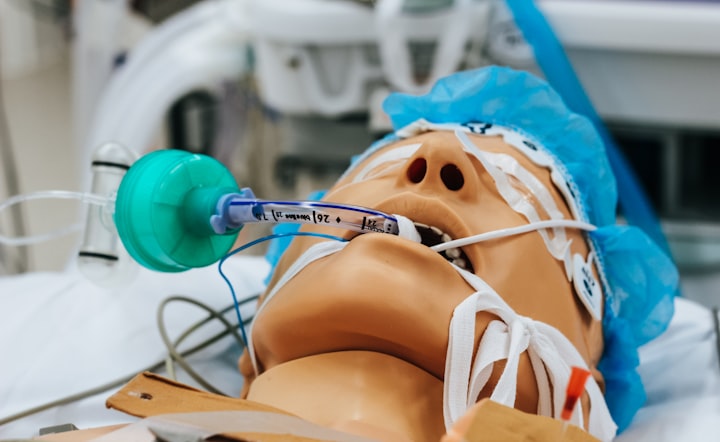
Death is a universal phenomenon that every living person will experience, yet it remains mysterious. Though death is familiar as our shared fate, the feeling of dying is still an elusive concept that science strives to understand. What does it actually feel like to die? This question has confounded humanity since the beginning.
First, we need to examine what death actually is. Dying refers to the cessation of all vital bodily functions, including heartbeat, brain activity, and breathing. Though the experience of death differs for each person, we do know that once dead, one's life in their current body ends permanently. However, some people who have clinically died and then been resuscitated report seeing a light at the end of a tunnel or floating above their bodies, observing doctors working urgently to revive them. This raises the question - is death always final?
Humans are fascinated yet terrified by the very concept of death. Much of this fascination stems from the fact that most of us cannot fully comprehend its entirety. Death evokes a fear of the unknown, as we do not know how unpleasant or painful it will be. With the help of modern science, we are continuing to develop a more in-depth perspective on what the experience of dying might feel like.
Though the causes of death vary widely, from diseases like diabetes and cancer to accidental injuries, they share one final common pathway: cardiac arrest. When the heart fails to pump blood, tissues are deprived of oxygen and death ensues rapidly. Statistics show that heart disease is the leading cause of death worldwide, accounting for approximately 30% of all deaths. This reflects the vital importance of the heart in sustaining human life. Regardless of the initial cause, a faltering heart marks the final step along the pathway to death.
Heart disease refers to a range of conditions that affect the heart, including heart attacks and strokes. The heart is a fist-sized muscle that pumps blood throughout the body to sustain life. However, blood flow can be impeded when plaque buildup narrows or blocks blood vessels, typically causing a heart attack. While heart attacks can lead to sudden death, they often produce warning signs in advance, such as chest pain, shortness of breath, nausea, and fatigue.
Heart attacks can be preceded by electrical abnormalities in the heart that appear days or weeks in advance. These electrical issues can trigger sudden cardiac arrest, which, without immediate CPR, leads to death within minutes. While most avoid pondering their demise, some ways of dying like burning alive or drowning are more agonizing than a peaceful passing surrounded by loved ones. Being engulfed in raging flames inflicts immense initial pain as the fire chars nerves and weakens muscles and brain function until losing consciousness from oxygen deprivation. However, the pain likely renders one unconscious almost instantly. Drowning also causes great panic and suffering. The sensation of breathing water is described as an internal burning in the chest. Though humans instinctively avoid inhaling underwater, the stress and discomfort from oxygen lack during drowning quickly saps energy. As water floods the airways, it halts oxygen transfer to the bloodstream. In immediate causes of death, adrenaline plays a major role in the physical sensations experienced.
Put simply, faster deaths are often less painful. However, when the cause of death is more gradual, a process called "active dying" takes place. During active dying, which occurs over hours or days, the senses start fading in a particular order. Hunger and thirst are lost first. After some time, the ability to speak is lost, followed by sight. Hearing and touch are typically the last senses to fade. However, scientific research indicates some people may still hear while unresponsive, such as when in a coma or nearing death. Data shows that in the final hours before death, dying brain cells can respond to sound even when unconscious. So does this mean the brain remains active after clinical death? Time of death is typically defined as when the heart ceases beating, implying all other bodily functions also stop then.
When you die, your heart stops pumping blood to your brain and body, causing your organs to fail. However, research shows that brain cells remain active for a short time after death. This means that after your body dies, your brain may still be functioning, essentially "trapping" your consciousness inside your non-functioning body for a few seconds. Though brief, the idea that the brain lives on after the body's death is unsettling, implying that you may be aware in some capacity even after clinical death.
The brain causes tingling sensations in the body, dizziness, and feelings of extreme hot or cold temperatures. Your vision will start to fade as your awareness of the world around you diminishes. After some time, you'll become unconscious and eventually die. One out of five people whose hearts stop beating can be revived; these are often called near-death experiences. A near-death experience is an unusual incident that happens at the brink of death, which the revived person later describes. These accounts often involve seeing tunnels leading to a bright light, spiritual encounters with deceased loved ones, and other events that seem mystical from a scientific perspective. None of these experiences can be scientifically verified, since only the revived person can witness them. In 1981, 28-year-old Scott Drummond went on a ski trip in Utah with friends. While waiting in line for the ski lift, a woman skier suddenly crashed into him. Though shaken, he continued skiing for the rest of the day. When driving home, he took off his glove and realized his thumb had been completely ripped from its socket. Knowing he needed medical care, Scott went to the nearest hospital for routine surgery on his hand. Lying in the operating room aware of his surroundings, he overheard a nervous nurse saying it was her first time assisting such a surgery.
During a medical operation, something went wrong, and Scott found himself hovering above his own body, watching the panic unfold. He suddenly realized that he had died. He then described walking peacefully through a field of long grass toward a big white cloud. As he approached the cloud, he suddenly saw a video depicting his entire life, from birth to the moment of his death. At that point, he awakened. Scott had been clinically dead for 20 minutes before being revived. After this near-death experience, his lifelong fear of death vanished. Near-death experiences provide the closest glimpse we have of what it actually feels like to die. We continue searching in whatever ways we can - through scientific research or by listening to firsthand accounts like Scott's - to find answers about the experience of death.
The process of dying is a gradual physical decline over an unpredictable period of time. As death approaches, you grow weaker and more fatigued, losing appetite as the body shuts down. Without food or water, you no longer feel hunger or thirst. Vital organs like the kidneys and heart begin failing, and the brain starts shutting down. When the brain loses oxygen, the cells lose electrical charge and energy, leading to death. In the moments after death, a burst of energy from the cells causes inconsistent heartbeats, damaging the organ. The entire body shuts down.
The experience of death is unique for each person. While some deaths involve inevitable physical pain, the severity varies. Some pass away gently from old age with less distress. Having a painful disease does not necessarily mean a painful death. Medications often alleviate symptoms and reduce suffering, allowing a peaceful, comfortable passing. As the body declines, noises like gurgling may occur when one becomes too weak to swallow or cough.
At the back of the throat, the death rattle can sound deeply disturbing. To loved ones, it may seem as if the dying person is suffering greatly. However, according to medical research, the death rattle likely does not cause pain or discomfort.
It is human nature to question the unknown and unravel life's mysteries. We all possess curiosity and a desire to explore and discover. This drive compels us to uncover enigmas like death, although we may grasp what dying feels like. What lies beyond death remains a puzzle. What if, when we die, we return to life, not in our familiar bodily form, but as something else - some eternal, immortal essence?





Comments
There are no comments for this story
Be the first to respond and start the conversation.